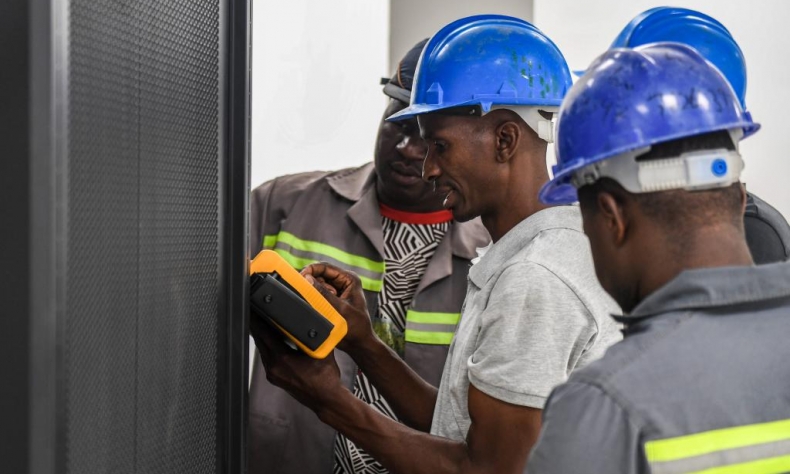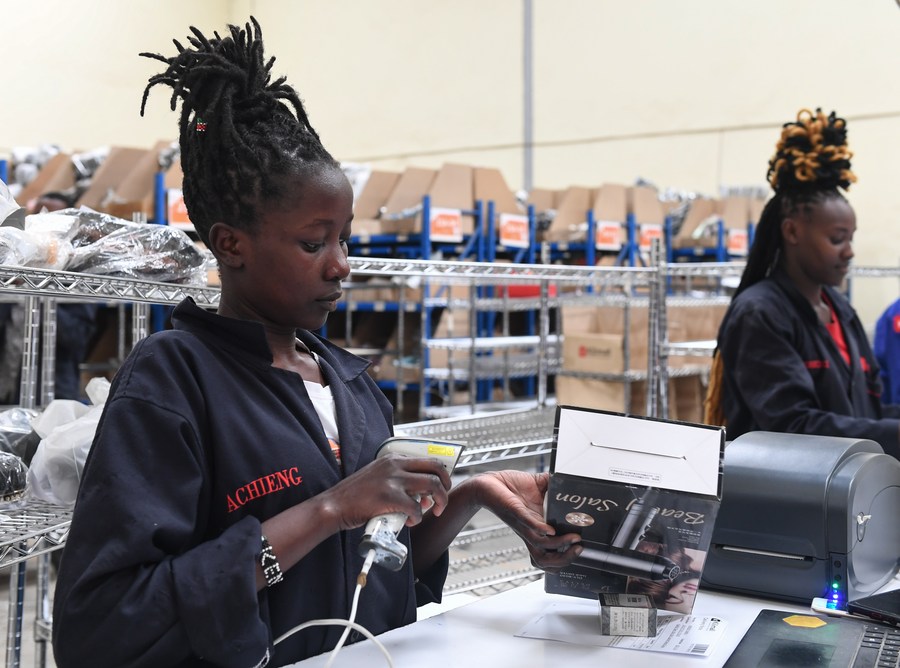Reclaiming the Digital Future

The Global South must establish data sovereignty through improving digital infrastructure, innovation, and solidarity.
In a crumbling tech hub near the marginal coastline, young Angolan developers, despite the challenges of unreliable Internet and dependence on foreign APIs (application programming interfaces), are tapping on donated laptops, debugging health apps that alert rural clinics of disease outbreaks. Their resilience and determination in the face of such obstacles are not just a source of innovation, but also of inspiration and hope.
At the 2025 Angola ICT Forum, these youth demonstrated purpose. Their quiet determination signals something larger: a tectonic shift underway in the Global South. A continent long treated as a testing ground for foreign software is beginning to assert its right not just to connectivity, but to control.
It is clear to me, as well as to most of these young people, that Africa’s digital destiny must not be borrowed, sold, or outsourced. It must be owned and built through BRICS collaboration.
From tenants to architects
The debate on digital sovereignty, the idea that nations should control their own data, infrastructure, and platforms, is no longer a mere academic discussion. It has grown into a geopolitical imperative, demanding immediate attention and action. As Kenyan technology expert Nanjira Sambuli warns, African nations without control over their digital foundations are merely “tenants in someone else’s digital house.”
Today, most of Africa’s essential digital systems, such as election software, identity registries, and payment gateways, are operated on foreign servers using foreign code. This dependency is not neutral.
South Africa’s G20 presidency is actively working to improve cross-border payment systems, and beyond making these systems faster and cheaper, the government can measure success by owning and controlling these payment systems as a sovereign public asset. It’s an opportunity to improve the usage of local currencies.
This practice isn’t just about technology. It’s about economic survival. It is about who owns the future, and who’s allowed to use it. We cannot transform our economies towards sovereignty using code and platforms that are anti-BRICS.
Fang Xingdong, founder of the Internet strategy think tank Chinalabs and thought leader on Internet governance, positions China’s Digital Silk Road as a South-South alternative to Western data monopolies.
Africa’s potential will be realised when African states, as equal partners to BRICS and other progressive initiatives like the Belt and Road Initiative, have a focused implementation plan to invest and commit more than $2.9 billion to the digital infrastructure investment facility launched by the African Development Bank. We have all witnessed the development results of transforming African people’s lives through projects that enhance Africa’s economies towards economic sovereignty.

South-South digital alliances
Amid mounting geopolitical tensions in some parts of the world, countries in the Global South, from Venezuela to Vietnam, are seeking new forms of technological self-determination. The BRICS Plus countries have emerged as a key platform for this aspiration.
China, through its Digital Silk Road initiative, has laid thousands of km of fibre across Africa. In Angola, it has backed telecom infrastructure and funded data centres. In South Africa, Huawei and China Telecom have partnered with MTN to roll out 5G and cloud networks.
These projects are often dismissed in the West as “debt traps,” but the evidence is more nuanced. Scholars like Deborah Brautigam argue that Chinese loans are renegotiated, not enforced through asset seizures. What matters more, say experts, is whether African states use these investments to develop sovereign capabilities, not simply to plug service gaps.
African policymakers must not view China as just another aid giver, but as a strategic ally in the fight for digital sovereignty. We must stop outsourcing our digital future to countries that have not been friendly and continue to block our transformation policies, no matter who the aid giver is. It’s time to engage with China as all-weather friends who assisted us in the revolutions, to be even closer in the struggle for our digital sovereignty efforts.
Media sovereignty and narrative power
At the heart of digital sovereignty lies another battle: the battle for narrative control. As of 2025, more than 80 percent of Africa’s digital media content is hosted, moderated, and monetised by platforms based in the US and Europe. Media play a critical role in reversing that trend. By building regional distribution networks in South Africa, they aim to amplify stories of local innovation and shared identity.
The time has come for us to advocate for a digital solidarity charter – a multilateral roadmap for South-South media tech cooperation. The charter would include a commitment to open-source development frameworks, cross-regional co-investments in satellite and cloud infrastructure, and mutual recognition of data sovereignty laws.
The digital infrastructure built over the next decade will define the terms of economic inclusion for the next century. And the stakes could not be clearer: a world divided between platform subjects and digital citizens, or a Global South rewriting the rules of the game.
Digital sovereignty is not just about code; it is about courage. It requires a win-win culture of mutual respect and collaborative development. It is the soul of freedom, reimagined in fibre and data.
The author is President of TV BRICS AFRICA.
 Facebook
Facebook
 Twitter
Twitter
 Linkedin
Linkedin
 Google +
Google +










